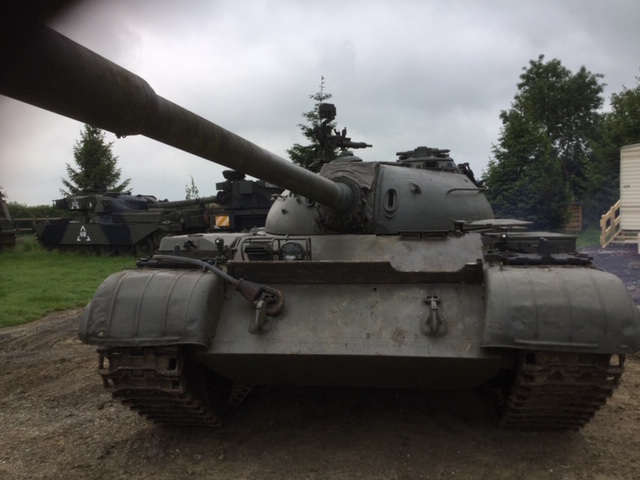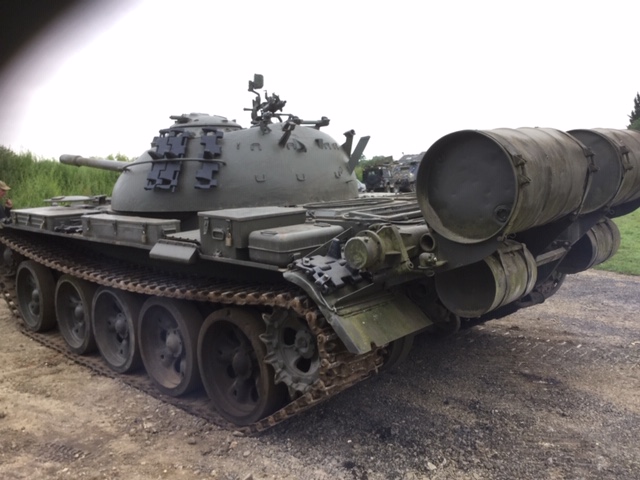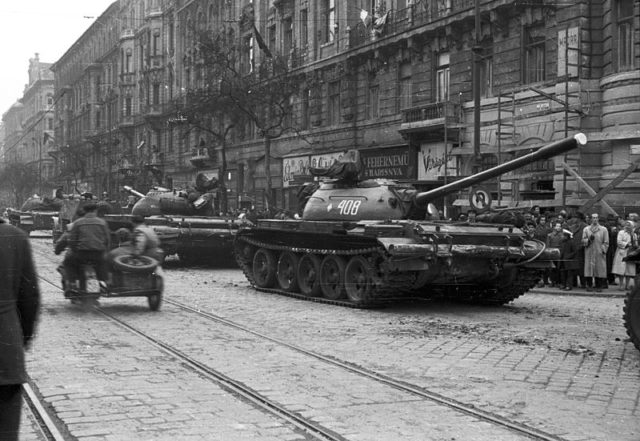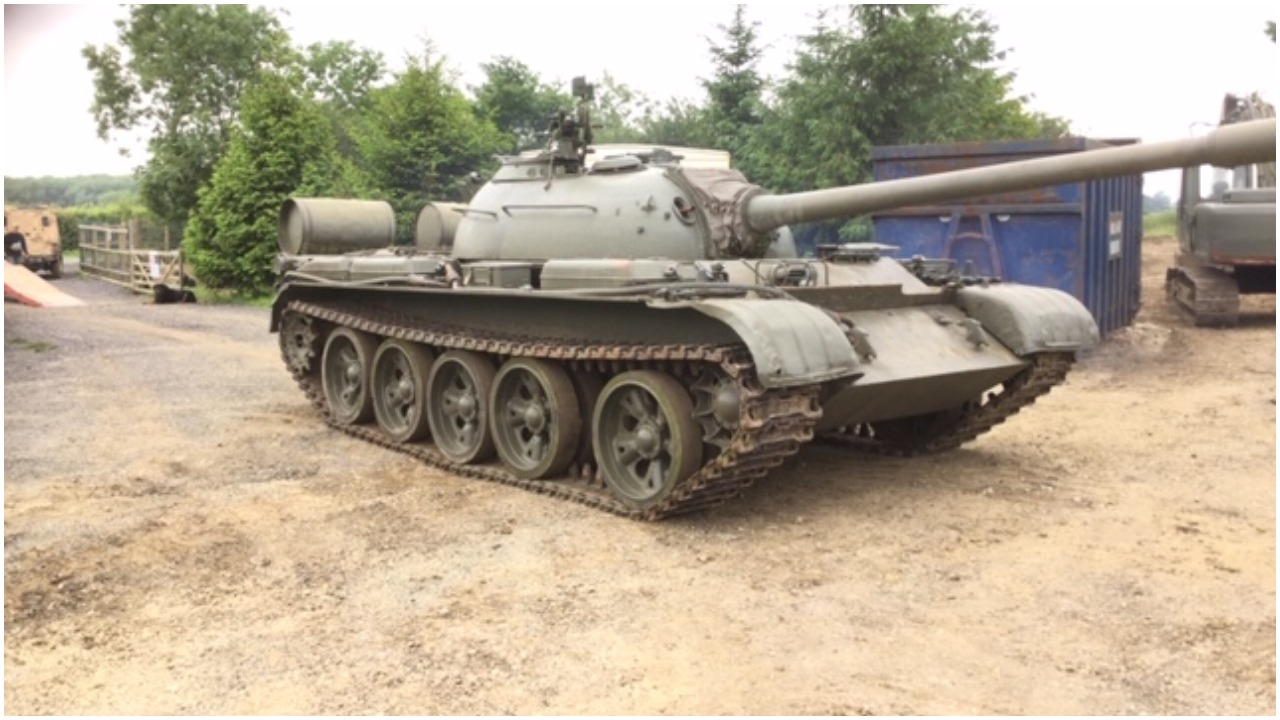A very popular model among the countries of the former Warsaw Pact, it was built with a license in countries such as Poland and Czechoslovakia.
A rare opportunity to buy a Russian T-54 Main Battle Tank – Cold War icon.
This particular beast is crammed with all of its original kit, even 4 machine guns, padded helmets, radios and intercom, specialist tools and equipment – even a big lump of soft wax to aid deep wading.
The guys at Tanks-ALot is the UK’s biggest Tank Driving Experiences school and THE only 1 to offer FULL DAY Tank driving Experiences and corporate events. We have over 150 Tanks & Military Vehicles ready to be driven across our challenging courses.

You may remember the story of gold bars being found in a tank in 2018? While hunting on e-Bay one day, well respected owner of Tanks-A-Lot, Nick Mead, discovered a Chinese Type 69 tank for sale. He bargained and got it for approximately $41,000 (U.S.). Upon receiving the tank, he and his team began restoring it.
To everyone’s shock and amazement, they discovered $1.2 million in gold bars. Five of them, in fact, with a combined weight of over sixty pounds.
Iraqi soldiers took an enormous amount of gold from Kuwait when they invaded in 1990. At the war’s end a year later, officials made a concerted effort was to return the gold to Kuwait, and almost 3,220 bars were ultimately sent back. Some estimates put the value of the gold stolen from Kuwait during that period as high as $1.5 billion in U.S. dollars.
They have this cold war icon for sale and if you fancy a change from your usual transport then you check this beast out here www.tanks-alot.co.uk

The T-54 is the most massively produced tank in history. Together with its counterpart which was adapted to protect the tank and its crew against radiation, biological and chemical weapons, it reached a staggering number of produced units ― 100,000 tanks. This was in the Soviet Union alone.
During WWII, the Soviet Union relied on the combination of firepower and speed given by the T-34 tank. By the end of the war, several prototypes were already in development, as the USSR was looking to retire the T-34, and take its medium tank arsenal to the next level.
Thus, the T-54 was born. The tank’s official predecessor was the T-44, which used a 100 mm rifled gun, opposed to the T-34’s 76 mm gun. After making several other modifications, the T-54 was officially put into service as early as 1949, with its improved T-55 version entering service in 1961.
The armor specifications of the serial T-54A and T-54B models were ― 120 mm front, 80 mm on the sides, 30 mm on the roof and 20 mm on the bottom. These models were the ones put into massive production. The difference between the two was that the B model was fitted with the STP-2 “Tsyklon” 2-plane stabilizer.
It utilized a cutting-edge technology of the time, providing enough safety and firepower for its four-man crew, to raise concerns on the other side of the Iron Curtain.
The introduction of the T-54 prompted the development of the iconic Royal Ordnance L7 105 mm gun which is the core model of Britain’s most successful tank gun. In the US it led to the production of the M60 Patton.
This American main battle tank was based on the T-54A captured by Hungarian revolutionaries who delivered the tank to the British, during the Budapest Uprising in 1956.

Even though the USSR and the Allies never confronted each other in battle, numerous proxy wars and civil unrests during the Cold War era enabled a trial of the T-54 in combat. The tank saw extensive action in the Middle East, where it participated as part of the Syrian, Egyptian and Iraqi arsenal.
During the so-called Arab wars, Israel faced a significant number of T-54s employed by the Arab countries. The Six Day War in 1967 and the Yom Kippur War in 1973 both saw clashes between Israeli and Arab tanks which were at the time mostly Soviet-made.
Other conflicts include the Iran-Iraq War, the Jordanian Civil War, and Operation Desert Storm.
Book – “How Easy Company Became a Band of Brothers”
In Europe, the T-54 became the iconic symbol of Soviet repression, as these were the tanks that stormed the streets of Budapest in 1956. The T-54/55 is in use in over 50 countries all over the world. It participates in global conflicts to this day.
